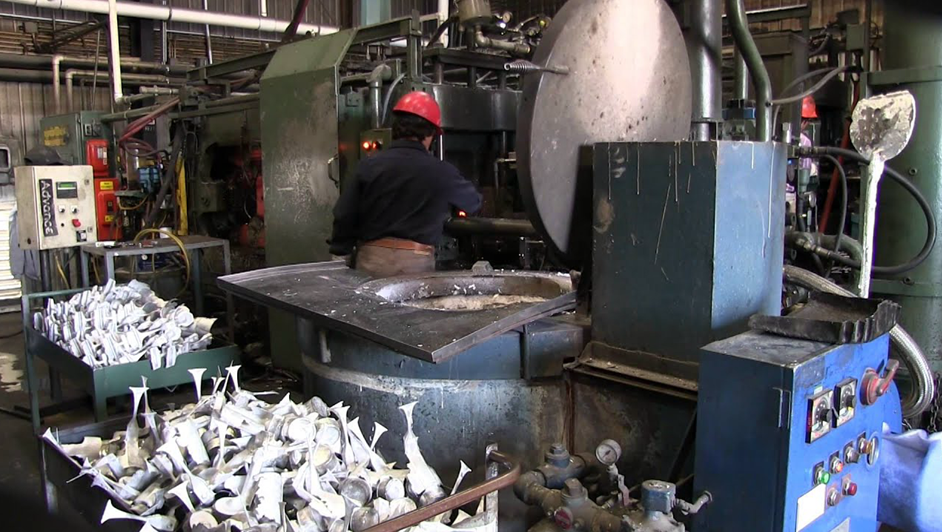Aluminum alloy die casting is a manufacturing process that involves the use of high-pressure injection of molten aluminum alloy into a mold cavity. The molten metal is then allowed to cool and solidify into the desired shape. This process is widely used in the production of a variety of components for different industries, including automotive, aerospace, and consumer electronics.
One of the main advantages of aluminum alloy die casting is its ability to produce parts with complex shapes and intricate details. This is achieved by using a mold made of two halves that are designed to fit together and form the desired shape of the part. The mold is then injected with the molten metal, which fills the cavity and takes on the shape of the mold.
Another advantage of this process is its high production efficiency. The use of high-pressure injection allows for the production of large quantities of parts in a short amount of time. Additionally, the use of aluminum alloy as the casting material results in parts that are lightweight, yet strong and durable.
Aluminum alloy die casting also offers a high degree of precision and accuracy in the production of parts. The use of advanced computer modeling and simulation software allows for the design of highly complex parts with tight tolerances. This results in parts that are consistent in quality and performance, which is essential for many high-tech applications.
In addition to these benefits, aluminum alloy die casting is also a cost-effective manufacturing process. The use of high-pressure injection allows for the use of less material, which reduces the overall cost of the production process. Additionally, the use of aluminum alloy as the casting material is less expensive than other materials, such as steel or titanium.
Despite these advantages, there are some limitations to aluminum alloy die casting. One of the main limitations is the size of the parts that can be produced using this process. The size of the mold and the amount of molten metal that can be injected into it are limiting factors that can restrict the size of the parts that can be produced.

Another limitation is the material properties of aluminum alloy. Although it is lightweight and strong, it may not be suitable for certain high-temperature or high-stress applications. In such cases, other materials such as steel or titanium may be more appropriate.
In conclusion, aluminum alloy die casting is a robust manufacturing process that offers numerous advantages in the production of high-quality components. Its ability to produce parts with complex shapes and intricate details, as well as its high production efficiency and precision, make it ideal for a variety of applications. However, its limitations must also be considered when selecting it as a manufacturing process for specific applications.
-

- Magnesium thixomolding parts laptop housing cover B
-

- Magnesíumblendi steypuhlutar og íhlutir fyrir rafhjól
-

- OEM deyja-steypu íhlutir og hlutar
-

- Magnesíum thixomolding hlutar UAV húsnæði
-

- Reiðhjól fyrir börn Krakkahjól fyrir 3-16 ára Barn /OEM Baby Children Cycle Kids Mountain Reiðhjól 2022
-

- Reiðhjól Freehub 12/14/16 tommu barnahjól Low Rider hjól Magnesíum ál barnahjól 3-8 ára Á lager

 0086-750-5616188
0086-750-5616188 +86 13392089688
+86 13392089688 sales@zhongmei-tech.com
sales@zhongmei-tech.com







